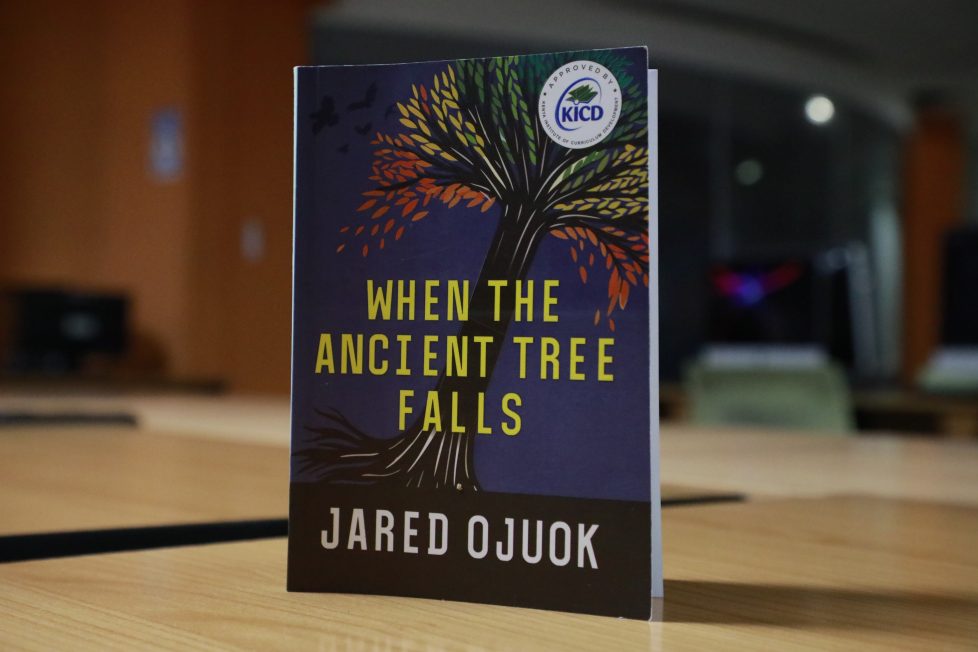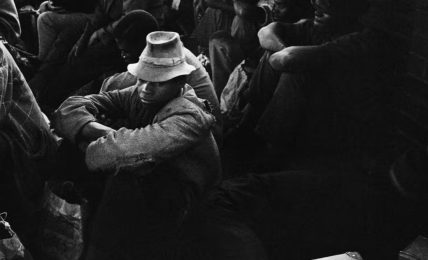Book Review: “When the Ancient Tree Falls” by Jared Ojuok
The author adopts and adapts the English Language as a means of access to Luo indigenous culture, aesthetics and cosmology.

The author adopts and adapts the English Language as a means of access to Luo indigenous culture, aesthetics and cosmology.

Title: When The Ancient Tree Falls
Author: Jared Ojuok
Reviewer: Barack Oduor
Year Published: February, 2022
Publisher: Oba Kunta Octopus
Pages:227
A story is described as well told when it seizes a reader’s imagination and takes it several ages back especially if it’s an epic tale. That is what Jared Ojuok’s masterpiece When the Ancient Tree Falls does to its readers. It evokes emotions, yet it’s a story carefully told with a deep understanding of a community’s traditions and way of life.
In the book, the author adopts and adapts the English Language as a means of access to Luo indigenous culture, aesthetics and cosmology. This, he does in creating an authentic African story that effectively bridges the cultural and linguistic gap between Luo and non-Luo readers by using Luo speech patterns and linguistic features. One of such features is his direct use of Dhoulo words.
Just like author Chinua Achebe who once described African proverbs as the palm oil with which words are eaten, the deep use of Luo analogies in explaining circumstances makes the story rich as this serves as a linguistic tool for conflict management.
The story is set in a remote Kenyan village called Mumbo and depicts the traditional political, socio-cultural, and economic life of the traditional Luo community. The story is about the accomplishments of Ngode Aganyo, a pre-colonial community leader in the vast land of Mumbo, that consists of six related clans.
Ngode was touted as a great warrior and a shrewd leader who led his family with love and firmness which made him admired within his community. His leadership exemplifies public participation in making key decisions through consensus building, structured organisation of political administration, and well-planned leadership succession, both at family and community levels.
Ngode is keen on carrying forward the spirit of his forefathers by diligently observing the rituals, teaching the customs to the young generation, and leading by example in the noble cause of sharing. Upon his death, the clan structures remain stable and he is given a hero’s send-off attended by a huge crowd of mourners.
The series of stories narrated through the thirteen chapters in the book highlight the various cultural practices among the Luo people. At the onset, the writer introduces Ngode the patriarch, his family, clan, and his community. Ngode’s conflict resolution skills are exhibited when he brings two quarrelling brothers together in the spirit of peaceful resolution of riwo-luedo (joining hands together).
Also introduced are the values of hard work, courtesy, kinship ties, and generosity. The use of stories and proverbs to pass significant lessons and teachings to young children is exemplified by all adult characters used in the book.
Marriage relationships were instituted, only after conducting thorough background checks on both sides of the family and there were clear rules of engagement between partners in a marriage relationship.
Organized ceremonies were central in the lives of the community members. These were elaborate compulsory observances that marked the end or beginning of seasons or happenings such as birth, death, and marriage. These activities brought the community together and were useful in teaching the younger generations the important values of the people.
Death was regarded as the final rite in the life of a person, and its occurrence attracted the participation of not just the immediate family members but the entire community. All ceremonies featured elaborate procedures that were clearly understood by every community member, and supervised by the elders.
The author’s motivation to write the book was inspired by the African proverb, “A man who sees a hen scattering excrement should stop it, for who knows who will eat the leg?”
The author believes that teaching the young generation traditional values and value systems will create a more cohesive society where good morals will be upheld, virtues of honesty, respect for seniors, and kinship ties will also be observed. Society will respect women and children, and participate jointly in bringing up a responsible successor generation that will carry forward the culture, the spirit of a people, informed by common belief systems and values.
The book is available in leading bookstores across the country and also in online platforms such as amazon. It is sold at Ksh 1,200.


